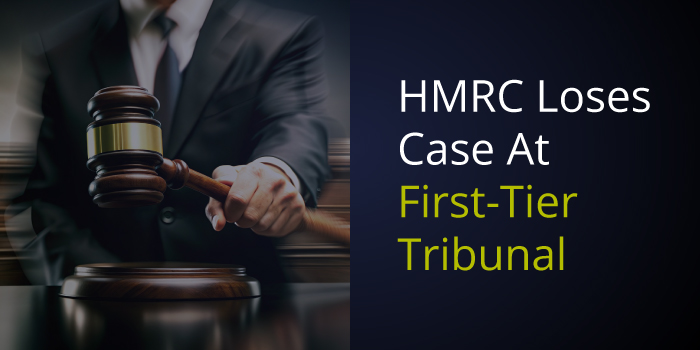A Win For Innovators? R&D Tax Incentives: HMRC Loses Case at First-Tier Tribunal
The First-tier Tribunal (FTT) recently handed down judgment in the case of Get Onbord Limited v HMRC. The FTT decision allowed the company’s appeal against HMRC’s decision to refuse its claim for an R&D tax credit under S1054 of Corporation Tax Act 2009 (CTA 2009), on the basis that the project did not advance overall knowledge or capability.
Background of Get Onbord Ltd
Get Onbord Limited (GOL) was a software company which created a machine learning model, a novel automated artificial intelligence (AI) analysis process relating to “know your client” (KYC) verification and risk profiling. The system was designed to replace traditional human analysis and comply with all regulatory requirements of the financial services sector. GOL claimed Research & Development (R&D) tax incentives in respect of R&D expenditure leading to the creation of a surrenderable loss. GOL submitted a claim for an R&D tax credit, however HMRC contended that GOL was not entitled to the enhanced R&D tax relief it had claimed on the basis that the project did not amount to R&D.
First-Tier Tribunal Decision
Whether the tests for R&D within the meaning in the BEIS guidelines had been met was the key issue before the FTT.
Relevant passages of the BEIS guidelines included.
- R&D for tax purposes takes place when a project seeks to achieve an advance in science or technology.
- An advance in science or technology means an advance in overall knowledge or capability in a field of science or technology.
HMRC argued that GOLs project did not advance overall knowledge or capability and therefore wasn’t R&D. Despite HMRC’s acknowledgement of GOL’s technology as “impressive”, HMRC believed that GOL had “used existing processes and technologies that were readily deducible to produce a new innovative product.
GOL argued that “Every piece of code is built on existing code; nobody writes code from scratch….It is rare for software development to be completely novel.”
The FTT found Mr Cahill, representing GOL, to be an impressive witness. He had worked for more than 25 years building models for investment banks and had written code himself. The FTT noted that although Mr Cahill did not have any formal qualifications in the relevant field of R&D his experience and up-to-date knowledge of software capabilities, was sufficient for him to be regarded as a competent professional.
Conversely, Mr Umar, the HMRC officer responsible for the compliance check had no technology experience or expertise, nor was he aware of the credentials of those members of HMRC’s in-house software development team he sought advice from. It was noted that his lack of scientific knowledge or experience meant that his evidence was of no real use to the FTT.
The FTT agreed that the burden of proof lies with the company making the R&D claim but “we need to keep in mind what is often referred to as the shifting of the evidential burden”. The relevance of this in this context is that once evidence has been provided by the claimant, the burden must pass to the Revenue to produce some material to show that the project was a routine advance.
Key Conclusions
- It is not necessary for each component part of a solution to be novel to the project in question, particularly for software development businesses that utilise existing processes and technologies for innovation.
- A competent professional does not need to have formal qualifications in the relevant field of R&D but experience and up-to-date knowledge about the technical elements of the R&D project can be evidence of such. The case highlights the importance of appropriately experienced competent professionals in making a legislation and risk-based assessment of the R&D activity, as their evidence is fundamental in supporting an R&D enquiry.
- Shifting the evidential burden expresses a notion of practical common sense whereby once a claimant company has done enough to show that there has been a technological advance, the burden passes to HMRC to produce material to evidence there has been no advance.
- Although this is a significant decision, HMRC may continue to resist claims in similar circumstances on the basis that a First-tier Tribunal decision does not represent binding precedent. It will be totally unreasonable for HMRC to ignore the First-tier Tribunal’s decision solely because it dislikes it but given its significance HMRC may seek to appeal the decision to the Upper Tribunal.



